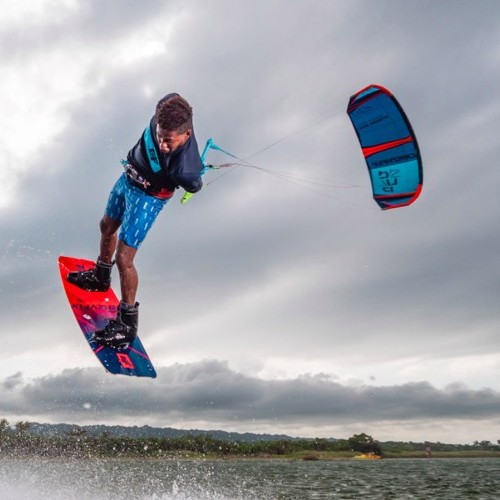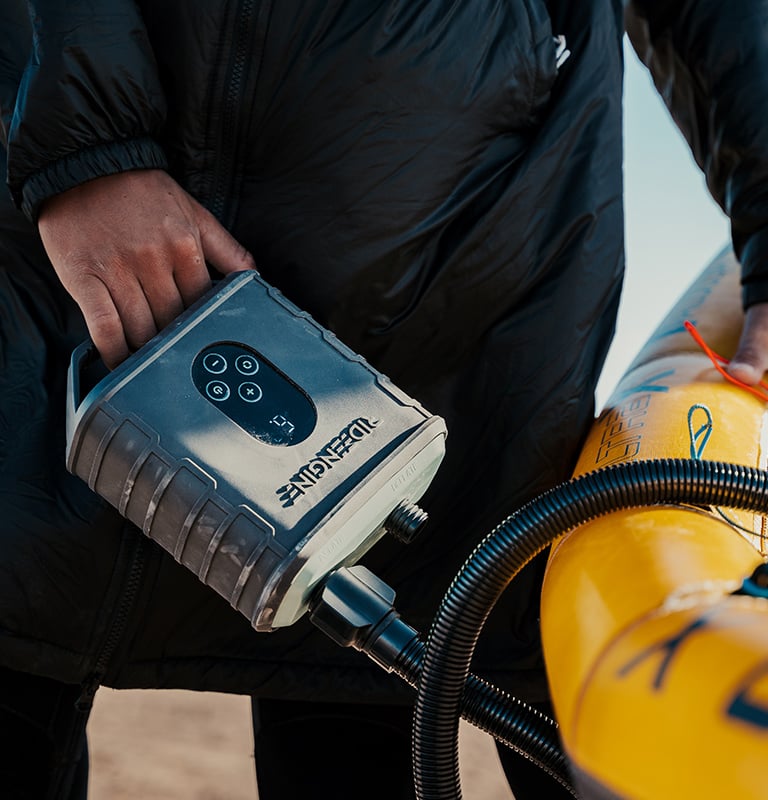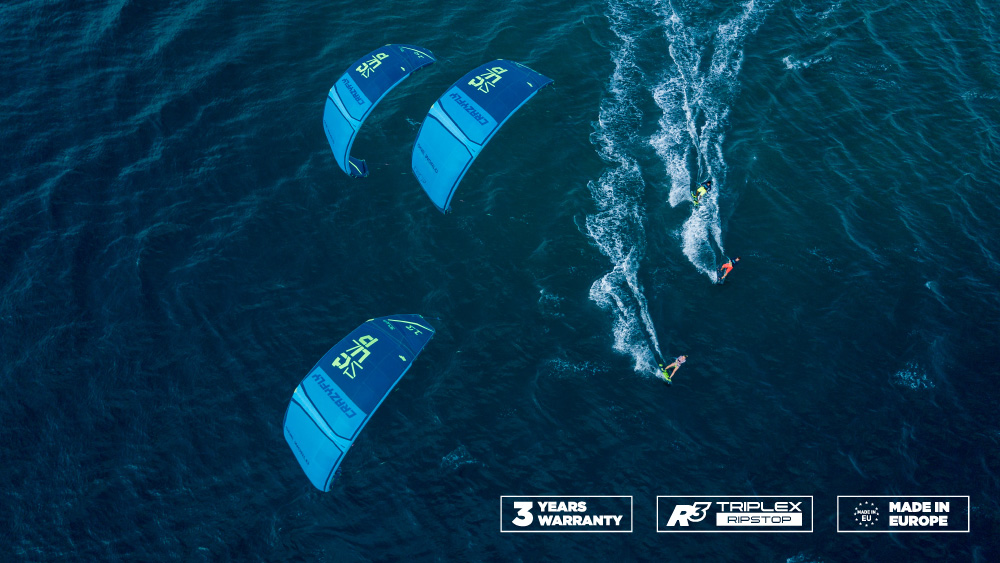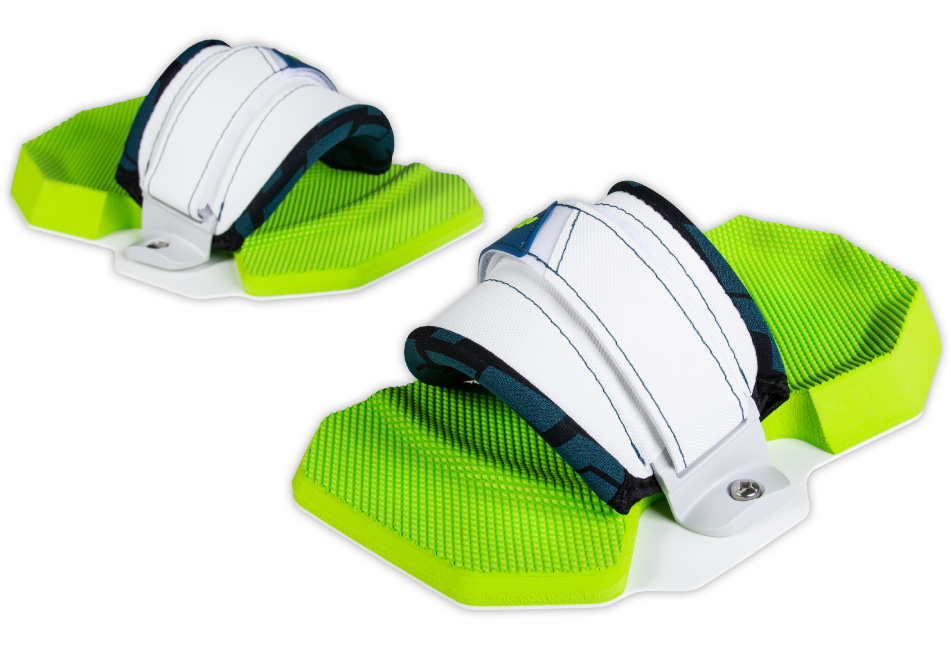
Is This Sustainable? CrazyFly – Juraj Bukovcak
Features / Mon 14th Oct, 2019 @ 5:08 pm
It’s evident that climate change is happening – but what can we do to mitigate it? Rou Chater got the chance to catch up with Juraj Bukovcak to ask him the main question on everyone’s mind… Is this sustainable?
What are you working to as a brand to reduce your impact on the planet?
We have always focused on the quality and durability of our products. We are the first and only brand to have a three-year warranty on kites and boards, and I believe this shows our confidence in the products we build in our factory. The longer the product stays in use, the less rubbish is produced. Simple!
On the other hand, we had taken the eco-friendly approach in the early days and pushed it further when we built up our new factory five years ago. We chose a strategic spot for the factory in an area with clean electricity coming from a river power plant, which is less than one kilometre away from the factory. We also use river water for cooling various processes in our production.
We have always been striving towards less waste in production. Not only is it cost-effective, but also eco-friendly. We push this to the maximum with the latest technologies, such as computed laser cutting and CNC cutting etc. Every supplier that cuts down a tree for CrazyFly plants two. We have signed agreements with all our wood and paper suppliers. At the moment, we have a new kite development in the pipeline which could result in the most durable kite on the market.
Last but not least, we are introducing all paper packaging for 2020 products, which is fully recyclable.
Why is it so difficult for us as an industry to move away from plastics and chemicals in the production process?
It is tough to find eco-friendly alternatives to some substances, such as epoxy or paint. However, we have already seen more eco-friendly epoxies and inks coming to the market, but most of these do not yet have the needed performance. The other problem is costs the costs. Many eco-friendly solutions are more expensive, and on the other hand, you face immense pressure on the price of kite gear from the end consumer.
Is the whole sustainability issue something we can ever get on top of or are we doomed to failure?
Ten years ago, we made big steps to have more eco-friendly products in kiteboarding. At the moment, it is hard to see a fully sustainable model where everything for kiting would be eco-friendly. Look at items like EVA footpads, or even the kite itself. These are very hard to recycle. You can upcycle a kite into a bag, but eventually, the bag will end up in the bin and EVA footpads will end up in a landfill for sure. We certainly hope for a better future with new technologies and materials popping up every year, and we are on a lookout for these.
What can we improve upon as kitesurfers to make less of an impact?
Choose the gear wisely. Spend a few minutes to check who makes your gear, where and how. Look for quality/durability. Take care of your equipment, so it lasts longer. I think buying a durable product even at a slightly higher price pays off at the end and results in savings. Not only in your wallet, but on the planet too. Protect the ocean, get involved in beach cleanings.
What steps do you take personally in your own life or when at the beach?
Living eco-friendly has become a habit for me. I am not obsessed with it, but it does not take much extra effort to be eco-friendly. I try to do my bit for the planet. They are small things, but I could not do it any other way. I have always been pushing the eco-friendly issue in our company and many of my ideas have been implemented, which is great.
In my personal life, I bike to work and that has been one of the best things I have done as it clears my head and I have even physically felt the benefits. We try to shop “free-of-packaging” groceries, use a fabric bag, grow some vegetables and fruits at home. A few months ago, we switched to coconut sponges, and I was surprised these were available at some of the big grocery chains. It’s great to see things moving in the right direction on a bigger scale.
My philosophy is to live with a minimalistic approach. I spend more time selecting the right products, and then use these for years.
Are there any charities or foundations we should be aware of?
As a company, we are not involved with a sustainability charity, but we have been running the Kiteboarding for Children for quite a few years. We give a percentage to this charity from every sold product. This organisation supports education in impoverished areas of Africa.

Win a Ride Engine Air Box Electric Pump this issue in our FREE subscriber prize draw.
Mon 14th Oct, 2019 @ 5:08 pm
By Jen Tyler
Italian/Egyptian Jen Tyler grew up on the sandy beaches of the Red Sea and has been on the IKSURFMAG & Tonic Mag team since 2017.












